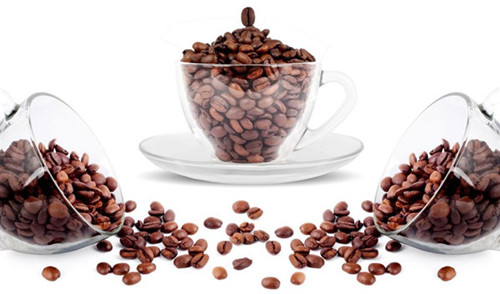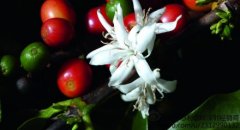Introduction to the Origin of Fine Coffee-- the uniqueness of Kenyan Fine Coffee Kenya Coffee
Rare good coffee-known for its rich aroma and balanced acidity.
Coffee professionals consider Kenyan coffee to be one of their favorite products, because Kenyan coffee contains every feeling we want from a good cup of coffee. It has a wonderful, satisfying aroma, balanced acidity, well-proportioned particles and excellent fruity notes.

Coffee arrived in Kenya in the 19th century, when Ethiopian coffee drinks were imported to Kenya via South Yemen. But it wasn't until the early 20th century that Bourbon coffee trees were introduced by St. Austin's Mission (St. Austin Mission) was introduced.
Kenyan coffee is mostly grown at altitudes of 1,500 to 2,100 meters and harvested twice a year. To make sure only ripe berries are picked, people have to make about seven rounds through the woods. Kenyan coffee is grown by smallholders who harvest the coffee and send it fresh to cooperative washing stations, where the washed, dried coffee is sent to cooperatives in the state of "parchment beans"(i.e. beans coated with an endocarp)("parchment beans" are the final state of the beans before peeling). All coffees are collected together and growers charge average prices based on their actual quality. This method of buying and selling generally works well and is fair to both growers and consumers.
The Kenyan government takes the coffee industry extremely seriously, and it is illegal to cut down or destroy coffee trees here. Kenya's coffee buyers are world-class buyers of premium coffee, and no country grows, produces and sells coffee as continuously as Kenya. All coffee beans are first acquired by the Coffee Board of Kaeya (CBK), where they are appraised, graded and then sold at weekly auctions, where they are no longer graded. The Kenya Coffee Board acts only as an agent, collecting coffee samples and distributing them to buyers so that they can determine price and quality. Nairobi auctions are held for private exporters and the Kenya Coffee Board pays growers below-market prices. The best coffee grade is PB, followed by AA++, AA+, AA, AB, etc., in that order. Fine coffee is shiny, delicious and slightly aromatic.
The auction is also organized to meet the needs of the distributor. These auctions usually sell small quantities (3 - 6 tons each) and have samples bearing the grower's logo for buyers to appreciate. After auction, exporters pack according to different flavors, different qualities and quantities required by blenders. This provides a great deal of flexibility for the deployer. Quality-conscious germans and nordics are long-term buyers of kenyan coffee.
On an international scale, the growth in Kenyan coffee volumes was remarkable, with exports rising from 800,000 bags in 1969 - 70 to 2 million bags in 1985 - 86. Production is now stable at 1.6 million bags, averaging about 650 kg per hectare.
The average price of coffee in Kenya has been rising since before the recent spike. Prices in 1993 - 1994 were 50 percent higher than they had been twelve months earlier. Price increases are mainly the result of increased demand.
Some buyers, especially Japanese ones, have complained about Kenya's coffee system. Some traders say the quality of coffee in the country has declined, pointing out that buying directly from farmers may be one way to improve quality. Either way, kenya's detailed regulations and procedures are a model for all coffee-producing countries.
Important Notice :
前街咖啡 FrontStreet Coffee has moved to new addredd:
FrontStreet Coffee Address: 315,Donghua East Road,GuangZhou
Tel:020 38364473
- Prev

Introduction to the Origin of Fine Coffee-- Rwanda Fine Coffee with unique Flavor
Rwanda coffee is absolutely high quality in the form of washed Arabica beans. As far as Africa is concerned, its coffee industry attracts attention because the country thrives mainly by producing the best possible coffee beans. The taste of Rwandan coffee is described as a grassy aroma with tropical climate characteristics. The country's fertile soil and suitable climate contribute to the growth of plants, coffee trees
- Next

An introduction to the Origin of Fine Coffee-- the uniqueness of Colombian Fine Coffee, Columbus
The largest producer of quality coffee in the world! The traditional deep-roasted coffee has a strong and memorable flavor. In 1808, coffee was first introduced to Colombia, which was brought by a priest from the French Antilles via Venezuela. Today, the country is the second largest producer after Brazil, with an annual output of 13 million bags of 60 kg each.
Related
- Detailed explanation of Jadeite planting Land in Panamanian Jadeite Manor introduction to the grading system of Jadeite competitive bidding, Red bid, Green bid and Rose Summer
- Story of Coffee planting in Brenka region of Costa Rica Stonehenge Manor anaerobic heavy honey treatment of flavor mouth
- What's on the barrel of Blue Mountain Coffee beans?
- Can American coffee also pull flowers? How to use hot American style to pull out a good-looking pattern?
- Can you make a cold extract with coffee beans? What is the right proportion for cold-extracted coffee formula?
- Indonesian PWN Gold Mandrine Coffee Origin Features Flavor How to Chong? Mandolin coffee is American.
- A brief introduction to the flavor characteristics of Brazilian yellow bourbon coffee beans
- What is the effect of different water quality on the flavor of cold-extracted coffee? What kind of water is best for brewing coffee?
- Why do you think of Rose Summer whenever you mention Panamanian coffee?
- Introduction to the characteristics of authentic blue mountain coffee bean producing areas? What is the CIB Coffee Authority in Jamaica?

